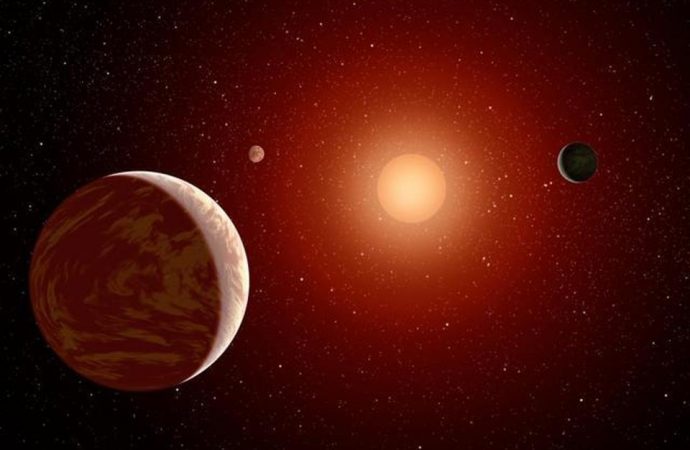With over 4,000 confirmed exoplanets, we’re starting to get an idea of which types are common and which are rare. We’ve learned that our solar system is rather unusual in ways you wouldn’t expect. Take, for example, the presence of large planets orbiting small stars.
Source: Forbes
Our Sun is a mid-sized main-sequence star, and it has one large planet orbiting it. Sure, our solar system has several planets, but Jupiter dominates in terms of mass. It is 2.5 times more massive than all the other planets combined.
In a way this makes sense. Young stars have disks of gas and dust around them as they form, and planets form from this material. A large planet would tend to capture a lot of gas and dust, and that leaves less for other worlds. You might also think that larger stars are more likely to have larger planets. Since our solar system only has one Jupiter-like planet, smaller stars would have few if any. But there you’d be wrong.
One of the things we’ve noticed about exoplanets is that small red dwarf stars often have large Jovian planets. About 30% of exoplanets orbiting red dwarfs are more massive than Jupiter. So how do such small stars have such large planets? Recently a team looked at just this question.

Anthony Mercer and Dimitris Stamatellos created a computer simulation to model how planets form within the protoplanetary disks of red dwarf stars. They found that when a large disk forms around a small star, it can fragment into different regions, known as a disk instability. When this happens, large planets can form within these regions. In fact, the planets can form within a few thousand years, which is the blink of an eye on the cosmic scale.
The key factor in forming a disk instability seems to be the ratio of the disk mass to the mass of the star. It is most likely when the disk is 30% to 60% of the star’s mass, which is relatively high. Larger stars such as the Sun are less likely to have such massive disks, so Jovian planets are less likely to form.
Source: Forbes

































Leave a Comment
You must be logged in to post a comment.